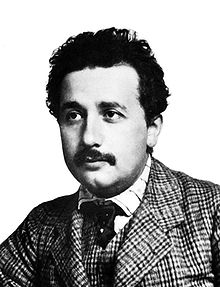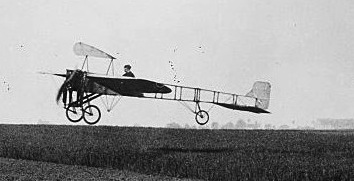20th century skills for the 22nd century and beyond!
By Martin Horejsi
Posted on 2011-03-01
“To know the road ahead, ask those coming back.”
—Chinese Proverb
A team of science educators has developed a new NSTA position statement acknowledging the value of 21st-century skills within the context of science education (available here). The statement advocates for the science education community to support 21st-century skills consistent with best practices across a science education system and notes that “exemplary science education can offer a rich context for developing many 21st-century skills, such as critical thinking, problem solving, and information literacy.” 
With the first decade of the 21st century already in the rear view mirror, it is somewhat interesting-for several reasons-to still be considering what we call 21st century skills. Like it or not, the 21st century is already 11% over, and yet 21st century skills discussions are couched as if 1) there is a really a choice, and 2) the 21st century is still to come.
Let’s take a stroll down memory lane to consider the challenges to traditional education when calendar pages all over the globe flipped from 1899 to 1900, or in this case, to 1911.

Some of the notable events of the first 11 percent of the 20th century include:
- The first Nobel Prizes are awarded
- The first Trans-Atlantic Radio Signal
- Einstein proposes his theory of Relativity
- The first electric washing machine
- Ford begins selling the Model T
- Plastic is invented
- Peary is first to reach North Pole
- The air conditioner is invented
- Blériot flew his monoplane across the English Channel
- Rutherford discovers structure of the atom
- Raymonde de Laroche was the first woman to receive a pilot’s license
- Amundsen reaches the South Pole
- The first talking motion picture is demonstrated
Digested, this list indicates we drive cars, human flight is obvious, instant global communication is possible, we have a serious challenge to Newton, the guts of an atom are known, and we have stood on the extreme reaches of our planet. In essence, kids, everything from here on out will be much different than anything known before. Ever.
Two years before the first moon landing, Marshall McLuhan penned the following: “Today’s child is bewildered when he enters the 19th century environment that still characterizes the educational establishment, where information is scarce but ordered and structured by fragmented, classified patterns, subjects and schedules.”

Now lets jump ahead a few decades to see how the 20th century skills played out. But what were the skills of the last century? I’m not sure, however the students of that era either dealt with, discovered, or invented some big ticket things like world wars, the great depression, electrification, antibiotics, the atomic bomb, x-rays, television, telephones, jet flight, radar, vaccines, computers, the moon landing, the internet, and cell phones, just to name a few of the thousands of new additions to society. Not an insignificant list compared with our list that includes iPods, Facebook, eBay, YouTube, video chat and digital books. Sure, I know there are greater things to point a finger at for examples of 21st century change, but as governments fall and rise, the revolutions of Facebook, Twitter, YouTube, and soon (my guess) Google Earth should hardly be surprising. If you recall, Thomas Jefferson did once say, “Information is the currency of democracy.” And if there is anything the above list of web-based tech shouts out, its information.

So were people in 1911 concerned that the education system was failing to teach the skills necessary to be a productive citizen in the new century? I don’t know. I wasn’t there. But there are plenty quotes from education experts of the time expounding upon the perils and pitfalls of our current public school trajectory. For example, in the first half of the last century John Dewey wrote, “Education is a social process. Education is growth. Education is, not a preparation for life; education is life itself.” Wow, John, that sure sounds a lot like our 21st century skillset.
However, what I do believe is different in the 21st century is the acknowledgement that we can only use today cautiously to predict tomorrow. Further, the skills expected of high school graduates are not limited to those of content, but also must include a flexible, fluid, dynamic attitude that integrates well with any situation the student may encounter. Oh, and the student will encounter situations unlike any generations previous.
What the 21st century has taught us thus far, very much like the first decade of the 20th century, is that inventions and institutions are not much more than suggestions. And to think otherwise is to place too much faith in stasis. As NSTA solicits input about 21st century skills, something should feel familiar about the topic. In the draft position statement, the following list is provided including: core subject knowledge; learning and innovation skills; information, media, and technology skills; life and career skills; adaptability; complex communication/social skills; nonroutine problem solving; self- management/self-development; and systems thinking.
Sounds an awful lot like the processes of science to me. And what’s not to like about that?
Actually, there is something. It’s subtle, but we have longed for predictability in education, and now it seems we are attempting to encapsulate unpredictability into a predictable program with defined outcomes.
My worry here is that we might be using the same piece of 20th century educational practice that concerned McLuhanin in order to package and sell the concept of 21st century skills. As Dewey foretold, the future is not a destination where one arrives and the story ends. And similarly, 21st century skills are not a finite set of testable proficiencies. Instead they are goals of direction and objectives of strategy. As we race against the clock to capture and cage the skills of the 21st century, let’s not incarcerate them, for once in captivity they might fail to thrive. The skills will need to roam in the wild if they are truly going to make a difference.
“Only when we know a little do we know anything; doubt grows with knowledge.”
—Johann Wolfgang von Goethe
Disclaimer: The views expressed in this blog post are those of the author(s) and do not necessarily reflect the official position of the National Science Teaching Association (NSTA).


